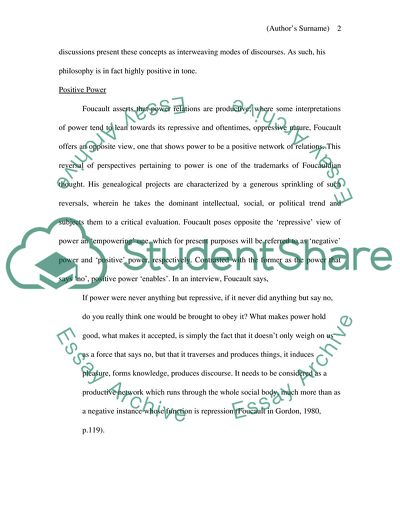Cite this document
(The Richness of Michel Foucaults Philosophy Essay Example | Topics and Well Written Essays - 1250 words, n.d.)
The Richness of Michel Foucaults Philosophy Essay Example | Topics and Well Written Essays - 1250 words. https://studentshare.org/philosophy/1704093-foucault
The Richness of Michel Foucaults Philosophy Essay Example | Topics and Well Written Essays - 1250 words. https://studentshare.org/philosophy/1704093-foucault
(The Richness of Michel Foucaults Philosophy Essay Example | Topics and Well Written Essays - 1250 Words)
The Richness of Michel Foucaults Philosophy Essay Example | Topics and Well Written Essays - 1250 Words. https://studentshare.org/philosophy/1704093-foucault.
The Richness of Michel Foucaults Philosophy Essay Example | Topics and Well Written Essays - 1250 Words. https://studentshare.org/philosophy/1704093-foucault.
“The Richness of Michel Foucaults Philosophy Essay Example | Topics and Well Written Essays - 1250 Words”. https://studentshare.org/philosophy/1704093-foucault.


